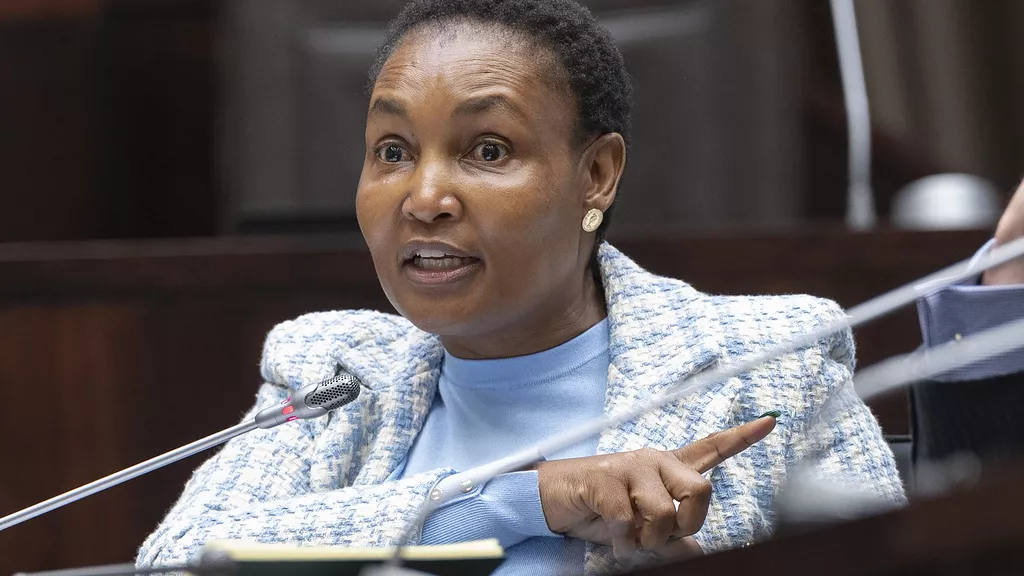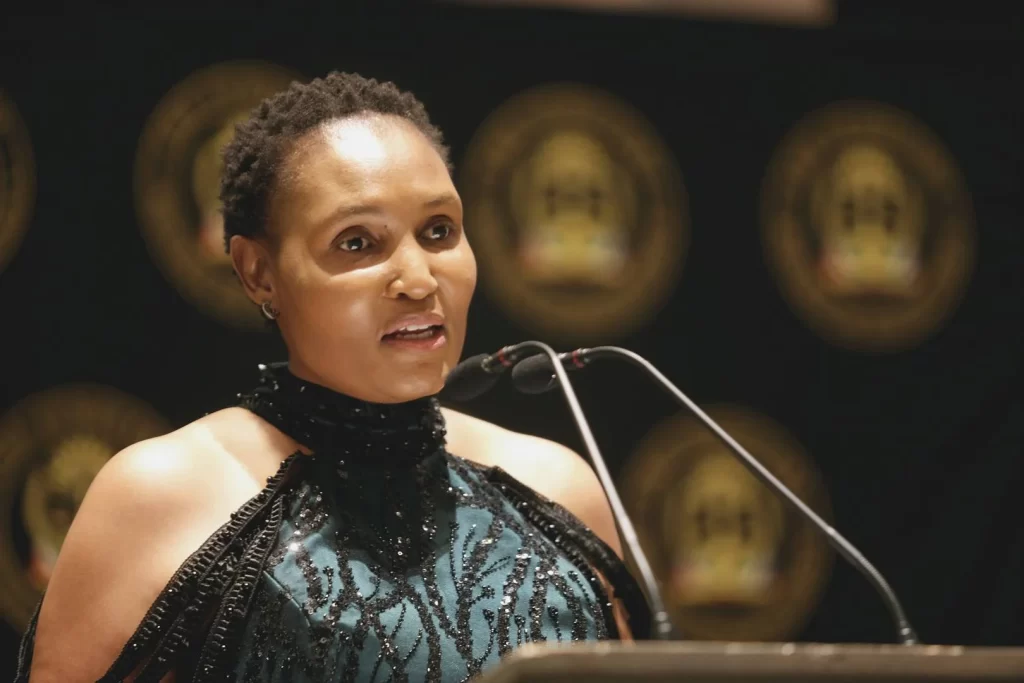South African Justice Minister Thembi Simelane strongly denied corruption allegations on Friday, addressing claims related to her involvement in the VBS Mutual Bank scandal that resulted in thousands of retirees losing their life savings.

The VBS Mutual Bank, which held savings primarily from retirees in the northern Limpopo province and unlawfully secured investments from local municipalities, was declared insolvent and bankrupt in 2018. Investigations revealed that more than 2 billion rand ($112 million) had been stolen from the bank.
Simelane, appointed to her position in June as part of South Africa’s newly-formed government of national unity, faces accusations of receiving a “loan” to purchase a coffee shop from a company allegedly involved in brokering unlawful investments for VBS from South African municipalities. This includes the Polokwane municipality where Simelane served as mayor at the time.
Responding to questions in Parliament, Simelane insisted that the loan was legitimate and that she had repaid it with interest. She vehemently denied any connection between the loan and municipal investments in VBS Bank.
“The minister does not decide who should be prosecuted or not prosecuted. I offered impartiality to the NPA (National Prosecuting Authority),” Simelane stated, addressing concerns about potential conflicts of interest given her oversight of the National Prosecuting Authority, which is handling VBS-related corruption cases.

The scandal has led to calls from various quarters for Simelane’s removal from her position as justice minister. President Cyril Ramaphosa, who has pledged to tackle corruption in government and state-owned enterprises, faces mounting pressure from opposition parties and civil society groups to dismiss Simelane.
Ramaphosa recently requested an official response from Simelane regarding the allegations. Speaking to the media after a state visit to China, the President assured that the matter would not be “swept under the carpet.”
The VBS Bank investigation has already resulted in convictions of some alleged masterminds behind the scheme. Tshifiwa Matodzi, the bank’s former chairman, was recently sentenced to 15 years in prison after entering a plea deal. Matodzi’s testimony revealed details of the scheme, including payments made to the opposition party Economic Freedom Fighters as “donations.”
Police investigations have shown that funds stolen from the bank were used to purchase luxury houses, vehicles, and distribute financial gifts to various individuals and organizations, including political parties.
As investigations into the bank’s collapse continue, the case highlights ongoing challenges in South Africa’s fight against corruption and the complex interplay between politics and financial institutions.



